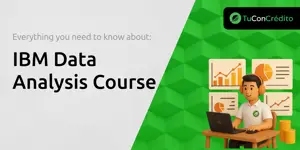In today’s fast-paced world, money can slip through our fingers faster than we realize. Whether it’s the morning latte, the subscription service we forgot to cancel, or the impulse buy at checkout, small expenditures accumulate and erode our financial foundation. Yet, many fall prey to common pitfalls that can derail long-term stability and security. Recognizing these errors early on empowers you to take action, build resilience, and achieve lasting financial freedom.
In this extensive guide, we dive into the most frequent money mistakes, backed by data and expert insights. You’ll find practical strategies to avoid overspending, build essential safety nets, maximize growth opportunities, and guard against emerging threats in 2025 and beyond. Let’s embark on a journey toward informed, confident, and intentional money management.
Understanding Overspending and Its Hidden Costs
It’s easy to underestimate the impact of daily indulgences. A single $5 coffee seems harmless until you multiply it by five days a week. Over a year, that coffee habit alone can total more than $1,300—funds that could fuel your emergency fund or accelerate debt repayment.
- Dining out several times weekly adds up quickly.
- Multiple streaming subscriptions rarely get full usage.
- Impulse retail purchases often lead to regret.
By tracking every expense and categorizing purchases, you gain clarity on where your earnings disappear. This awareness is the cornerstone of financial discipline and paves the way for healthier spending habits.
The Importance of a Well-Defined Budget
Without a roadmap, you’re driving blindfolded. A robust budget aligns your spending with your aspirations, whether that’s debt freedom, homeownership, or an early retirement. Studies show that individuals who establish clear and measurable financial goals increase their likelihood of success by over 40%.
Start by listing fixed expenses—rent, utilities, loan payments—and variable costs like groceries and entertainment. Allocate portions of your income to savings before discretionary spending. Automate transfers to savings and debt accounts to remove temptation. A written, detailed budget serves as your financial north star.
Securing Your Future with Emergency Funds
Life is unpredictable. Medical emergencies, sudden job changes, or urgent home repairs can emerge without warning. Without a cushion, these events force reliance on credit, plunging you into a cycle of high-interest debt.
Financial advisors recommend you save at least three to six months’ expenses in an accessible account. Even if you can’t reach that goal immediately, start small. Automate a modest monthly deposit and gradually increase the amount. Over time, the fund grows and provides peace of mind, allowing you to navigate crises without derailing long-term plans.
Maximizing Retirement Savings and Investment Strategies
Delaying contributions to retirement accounts is akin to leaving money on the table. The power of compound interest over time means that every dollar invested today could be worth exponentially more decades later. Employer-matched 401(k) plans, IRAs, and health savings accounts offer tax advantages and free money in the form of matches.
Diversification is equally critical. Spreading investments across stocks, bonds, real estate, and other assets reduces risk. Avoid the temptation to chase quick returns or put all your funds into a single hot stock. A balanced portfolio grows steadily and outpaces inflation, preserving purchasing power.
Fortifying Your Finances: Insurance and Digital Security
Insurance isn’t an expense—it’s protection against financial devastation. Adequate health, auto, home, and renters insurance ensure you don’t face crippling bills alone. Review policies annually to align coverage with evolving needs, such as adding riders for valuable possessions or increasing liability limits.
Equally important is safeguarding your digital footprint. Identity theft can wipe out savings and ruin credit. Employ strong passwords, enable multi-factor authentication, and monitor accounts for suspicious activity. By taking proactive measures, you protect personal data with strong security and reduce the risk of fraud.
Actionable Steps to Strengthen Your Financial Health
- Write down your financial goals and revisit them monthly.
- Automate savings and debt repayments to build consistency.
- Underutilize employer benefits—maximize 401(k) matches and FSAs.
- Use coupons, negotiate bills, and shop around for better rates.
- Maintain an up-to-date net worth statement and adjust your plan.
Accountability accelerates progress. Share goals with a trusted friend, financial coach, or online community. Periodic reviews help you celebrate wins and recalibrate when necessary.
Emerging Financial Threats in 2025 and Beyond
- Rising medical inflation outpacing standard cost-of-living increases.
- Increasing frequency of cyber and finance-related scams.
- Volatile economic conditions requiring dynamic cash flow planning.
Staying informed and agile enables you to modify strategies before issues escalate. Regularly reassess your budget, investment allocations, and emergency fund target in light of new data.
Building a Resilient Financial Future
Avoiding common mistakes doesn’t require radical sacrifice, but rather intentional choices. By tracking every dollar, maintaining a solid emergency fund, maximizing investment growth, and safeguarding your assets, you construct a fortress around your financial well-being. Incorporate these practices today and transform uncertainty into opportunity.
Remember, sound financial health is a journey, not a destination. Each small, consistent action compounds into significant progress over time. Embrace the lessons here, set avoid high-interest credit card debt as a priority, and consistently review your plan. Your future self will thank you for the security, freedom, and opportunities you cultivate through mindful money management.
References
- https://www.outlookmoney.com/plan/financial-plan/5-personal-finance-mistakes-you-should-avoid-in-2025
- https://www.experian.com/blogs/ask-experian/financial-resolution-mistakes-to-avoid/
- https://freshfpa.com/top-3-budgeting-mistakes-to-avoid-for-financial-success-in-2025/
- https://www.mapscu.com/2025/01/01/9-financial-mistakes-most-of-us-make/
- https://www.goodhousekeeping.com/life/g64744454/money-mistakes-you-are-making/
- https://www.investopedia.com/personal-finance/most-common-financial-mistakes/
- https://www.unbiased.co.uk/discover/personal-finance/savings-investing/top-10-most-common-financial-mistakes-to-avoid
- https://www.edelweisslife.in/blogs/insurance-glossary/what-are-the-key-financial-mistakes-to-avoid-in-2025










